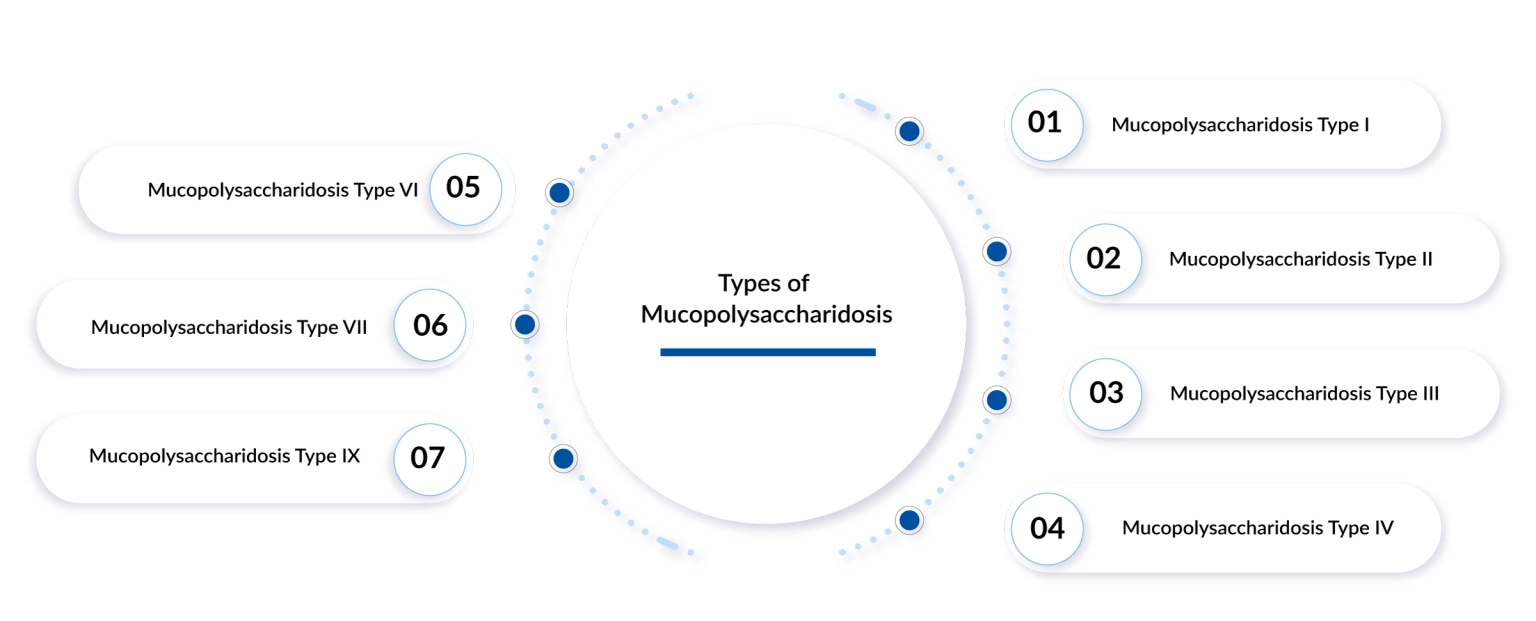Rare but Impactful: Treating the Various Forms of Mucopolysaccharidosis

Mucopolysaccharidosis (MPS) encompasses a group of rare, inherited disorders resulting from the deficiency of lysosomal enzymes responsible for breaking down glycosaminoglycans (GAGs). When these enzymes are lacking, GAGs accumulate inside cells, leading to chronic, progressive damage across various tissues and organs. Understanding the distinct mucopolysaccharidosis types is essential for developing targeted and effective treatment strategies.
Variations in MPS and Their Clinical Implications
Each form of MPS is tied to a specific enzymatic deficiency. For instance, Mucopolysaccharidosis Type I, also called MPS I Hurler syndrome, is caused by a lack of the enzyme alpha-L-iduronidase. This leads to developmental issues, organ enlargement, and bone abnormalities. In recent years, treatment for severe forms like MPS I Hurler has improved with the introduction of Aldurazyme (laronidase), a recombinant enzyme used in enzyme replacement therapy (ERT) to help manage the buildup of GAGs.
Other forms, such as MPS II (Hunter syndrome), MPS VI (Maroteaux-Lamy syndrome), and MPS VII (Sly syndrome), each have unique clinical profiles. For MPS VI, the introduction of Naglazyme (galsulfase) has significantly improved treatment outcomes by offering a targeted ERT option. Meanwhile, rare types like MPS IX remain largely experimental due to limited patient populations and a lack of commercial therapies.
Emerging Treatments and Innovations
The treatment paradigm for mucopolysaccharidosis types is gradually evolving. Although ERTs such as Aldurazyme (laronidase) and Naglazyme (galsulfase) are widely used, they have limitations—particularly in treating neurological symptoms due to their inability to cross the blood-brain barrier. Consequently, researchers are now focusing on gene therapy, substrate reduction therapy, and next-generation delivery systems to overcome these challenges.
Biotech firms, including Nippon Shinyaku, are working on novel solutions to bridge the treatment gaps for both common and ultra-rare MPS types. With enhanced clinical trial designs and a growing emphasis on holistic care, the goal is to offer long-term, systemic improvements rather than just symptom management.
The outlook for individuals affected by Mucopolysaccharidosis (MPS) is improving, particularly for those diagnosed with severe forms like MPS I Hurler. As science continues to advance, a future of more effective and personalized treatment options seems within reach.
Do Read The Latest Blogs By DelveInsight:
-
Key Pharma Players Changing The Dynamics Of Schizophrenia Market
-
How are Antipsychotics Transforming the Schizophrenia Treatment Space?
-
Breaking Boundaries: Innovations and Updates in Schizophrenia Treatment
- Art
- Causes
- Crafts
- Dance
- Drinks
- Film
- Fitness
- Food
- Jeux
- Gardening
- Health
- Domicile
- Literature
- Music
- Networking
- Autre
- Party
- Religion
- Shopping
- Sports
- Theater
- Wellness


